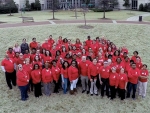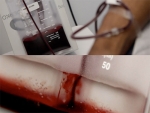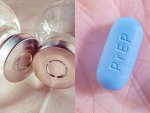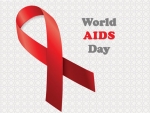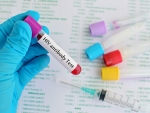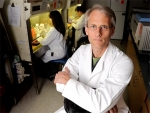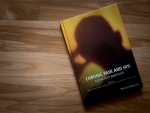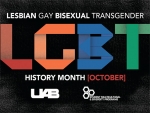Displaying items by tag: 1917 clinic
Tagged under
A collaboration between Birmingham AIDS Outreach and the UAB 1917 Clinic looks to provide nutrition support and education to address and prevent the rise of chronic disease in patients living with HIV.
Tagged under
Leaders in HIV research and treatment gather at UAB to address laws that prohibit gay men from donating blood.
Tagged under
UAB partners with state agencies and organizations to aggressively decrease the spread of HIV/AIDS to the point of elimination of the spread of AIDS by 2030.
Tagged under
UAB researchers develop a conceptual framework to help progress the care of people living with HIV by looking at ways to pursue better engagement in care.
Tagged under
A groundbreaking clinical research trial at UAB’s Alabama Vaccine Research Clinic to compare injectable PrEP versus a daily oral regimen for HIV prevention is now recruiting participants.
Tagged under
Bevan, Locke, Saag are among 12 speakers who will speak at the annual, independently organized event which will challenge attendees to embrace the event’s theme of possibility.
Tagged under
Increased longevity of those living with HIV means dealing with related health issues, including dementia and other cognition-related problems. An NIH grant supports development of interventions, treatments to improve everyday functioning, and quality of life.
Tagged under
UAB senior Jane Murphy will spend a semester in Pau, France, after being selected for the Benjamin A. Gilman International Scholarship.
Tagged under
Tagged under
Scientists from around the world will gather at UAB in December to focus on HIV research and women, particularly collaborative research on women living with HIV and those at risk.
Tagged under
Antibody VRC01 proves safe for individuals infected with HIV-1 but only modestly controls the virus in participants who stop receiving antiretroviral therapy.
Tagged under
Researchers from UAB, Emory and Microsoft demonstrate that HIV has evolved to be pre-adapted to the immune response, worsening clinical outcomes in newly infected patients.
Tagged under
Tagged under
Researcher focused on HIV and STD prevention in women will lead UAB School of Medicine Division of Infectious Diseases.
John Wesley Chancellor of Enterprise and Candy Mosley of Foley are Mr. and Ms. UAB 2014, with first alternates Ethan Gissendaner and Asia Sullivan.
Tagged under
An LGBTQ advocacy and inclusion leadership event is one of many Out Week activities at UAB from Oct. 13-17.
Tagged under
Nearly half of people living with HIV in the United States will be 50 or older by 2015, which places more emphasis on cognitive function research.
Michael Saag, M.D., helped transform the deadliest virus in human history into a manageable chronic disease, and he is now receiving a top honor.
Tagged under
